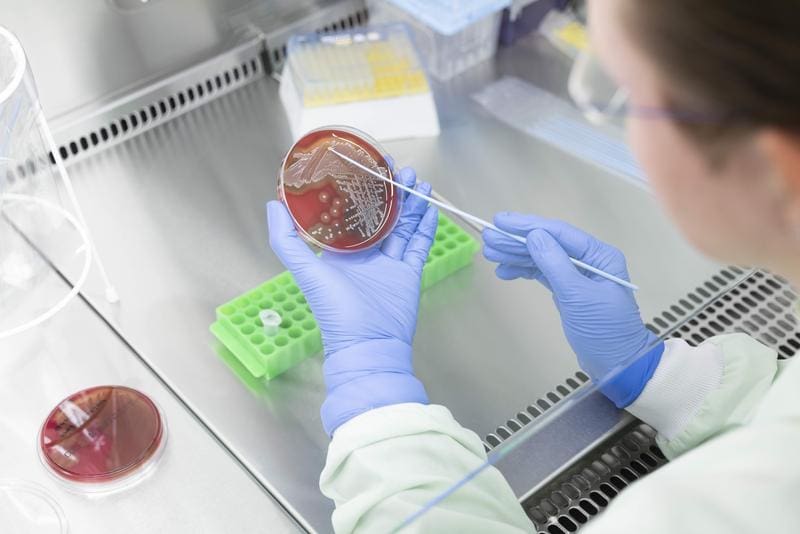New microarray platform detects vaccine gaps and resistance with a drop of blood
Researchers at the Leibniz Institute of Photonic Technologies, together with three Thuringian diagnostics companies, have developed a microarray platform that uses a drop of blood to test vaccination protection and detect antibiotic-resistant pathogens. The innovation originated at the InfectoGnostics research campus and addresses challenges such as vaccination gaps and resistant infections. The study was published in Frontiers in Microbiology.
The platform accelerates the search for suitable antibodies from weeks to days and enables faster development of new tests, which is beneficial in the face of rising antibiotic resistance.
The focus is on resistance to reserve antibiotics. The study tests antibodies that detect bacterial enzymes that render classes of antibiotics such as beta-lactams or colistin ineffective. Carbapenemases render almost all beta-lactam antibiotics ineffective, MCR-1 protects gram-negative bacteria such as Escherichia coli from colistin, which is used in severe infections.

The microarray tests all antibodies simultaneously as a scavenger and finder, saving time and steps compared to ELISA testing. Of 49 antibodies tested, about one-fifth showed strong, reproducible signals and are suitable for rapid tests such as lateral flow strips. The goal is to achieve results in minutes with high specificity and sensitivity.
For vaccination protection, the technology was already used in 2022 to detect antibodies against measles, tetanus or SARS-CoV-2. A drop of blood is enough to check the humoral immune response: fixed antigens on the chip bind matching antibodies.
This is relevant in light of rising measles cases: According to the WHO and UNICEF, there were over 127,000 cases in the European region in 2024, twice as many as in the previous year, exacerbated by declining vaccination rates after the pandemic. The platform could uncover vaccination gaps in examinations or checks.
The aim is to provide a flexible platform for new risks such as pathogens, vaccination gaps or resistance.
The development was carried out with INTER-ARRAY by fzmb GmbH, Senova GmbH and -4H-JENA engineering GmbH. INTER-ARRAY developed antibodies and microarrays, Senova and -4H-JENA contributed expertise in lateral flow assays and system integration. Leibniz-IPHT was responsible for assay development, target selection, detection methods and validation.
The study is part of the RESISTOVAC project, funded by the German Federal Ministry of Research, Technology and Space, which aims to provide a modular multiparameter platform for vaccination protection and resistance.
The platform can be expanded through modularity. In the future, it will be used in infection research at the Leibniz Centre for Photonics in order to bring diagnostics more quickly to clinics, practices or mobile centres.
Original publication:
Braun, S. D., Reinicke, M., Diezel, C., M├╝ller, E., Frankenfeld, K., Schumacher, T., et al. (2025). High-throughput screening of monoclonal antibodies against carbapenemases using a multiplex protein microarray platform. Frontiers in Microbiology Volume 16 – 2025. doi: 10.3389/fmicb.2025.1650094.
Burgold-Voigt S, M├╝ller E, Zopf D, Monecke S, Braun SD, Frankenfeld K, Kiehntopf M, Weis S, Schumacher T, Pletz MW, Ehricht R; CoNAN Study Group. Development of a new antigen-based microarray platform for screening and detection of human IgG antibodies against SARS-CoV-2. Scientific Reports. 2022; 12(1):8067. doi: 10.1038/s41598-022-10823-7
Editor: X-Press Journalistenb├╝ro GbR
Gender Notice. The personal designations used in this text always refer equally to female, male and diverse persons. Double/triple naming and gendered designations are used for better readability. ected.




